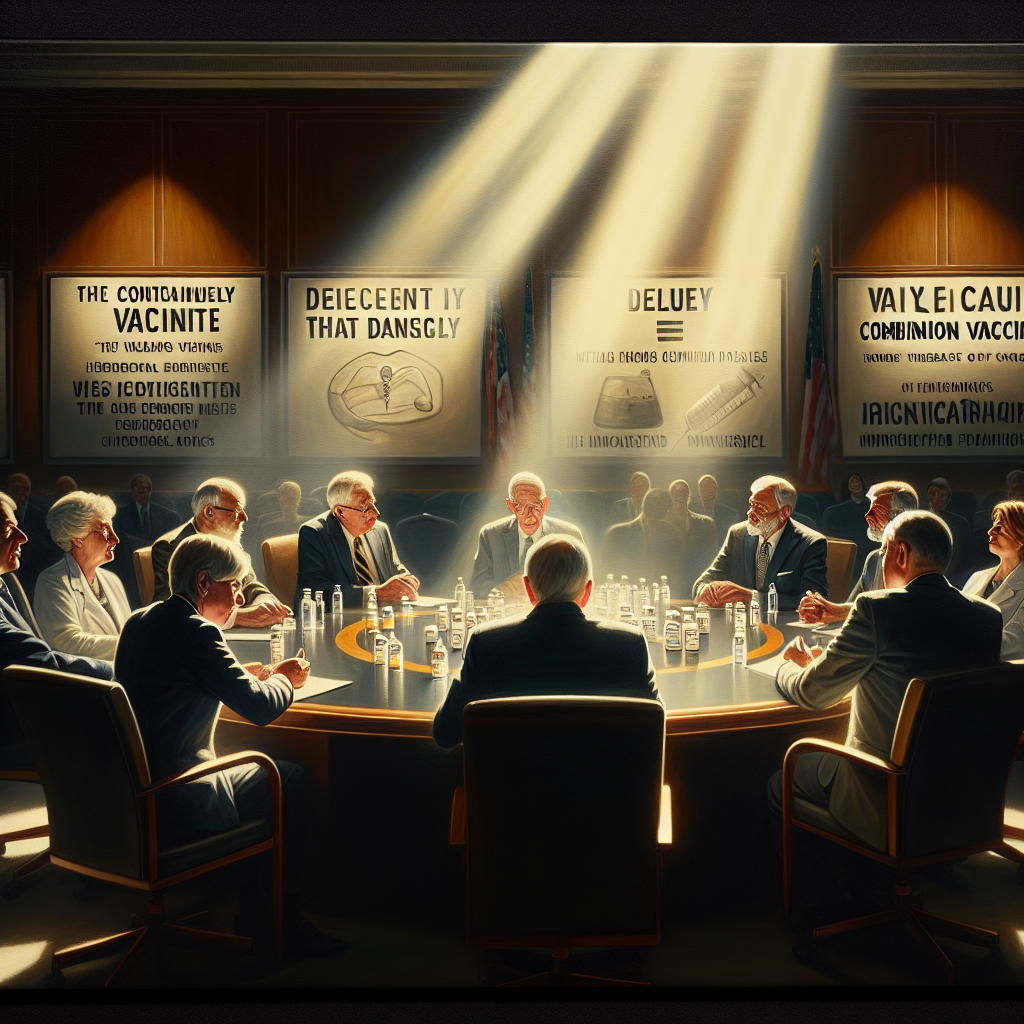[TITLE]Understanding the Controversy: RFK Jr.’s Vaccine Panel and the MMRV Immunization Recommendation[/TITLE]
[CONTENT]
Introduction to the Vaccine Advisory Panel
In recent developments, a vaccine advisory panel led by Robert F. Kennedy Jr. has sparked significant debate and media coverage. The panel, which is part of the Advisory Committee on Immunization Practices (ACIP), has made a controversial recommendation regarding the administration of the combined Measles, Mumps, Rubella, and Varicella (MMRV) vaccine. Specifically, they advised that this vaccine should not be administered before the age of four. This decision has raised eyebrows in the medical community and beyond, prompting discussions about the motivations and implications of such a recommendation.
What is the MMRV Vaccine?
The MMRV vaccine is a combination vaccine intended to protect children from four significant infectious diseases: measles, mumps, rubella, and varicella (chickenpox). Typically administered in two doses, the first dose is usually given to children between 12 and 15 months of age, with a second dose following between the ages of four and six. This schedule has been the standard practice endorsed by the Centers for Disease Control and Prevention (CDC) and widely accepted by pediatricians worldwide.
The Panel’s Recommendation
The recommendation to delay the administration of the MMRV vaccine until after the age of four is a departure from established guidelines. This decision has been attributed to the influence of Robert F. Kennedy Jr., a vocal critic of vaccines and prominent figure in the vaccine hesitancy movement. Critics argue that the panel’s decision is not based on robust scientific evidence but rather on ideological beliefs that challenge the consensus on vaccine safety and effectiveness.
Concerns and Criticism
The recommendation has drawn criticism from many in the scientific and medical communities. There is concern that delaying the MMRV vaccine could increase the risk of outbreaks of these diseases, which are highly contagious and can have serious health consequences. Measles, for example, is known for its high transmission rate and potential to cause severe complications, including pneumonia and encephalitis.
Medical experts emphasize that vaccines undergo rigorous testing for safety and efficacy before being recommended for public use. The current schedule for MMRV vaccination is based on extensive research demonstrating its effectiveness in preventing these diseases and minimizing potential side effects.
The Role of ACIP and RFK Jr.’s Influence
The ACIP plays a crucial role in advising the CDC on vaccine recommendations. Its decisions are typically informed by scientific evidence and expert consensus. However, the involvement of Robert F. Kennedy Jr., a figure known for promoting vaccine misinformation, has raised questions about the integrity of the panel’s decision-making process.
Kennedy’s involvement has brought attention to the broader issue of vaccine misinformation and its impact on public health policies. It underscores the importance of ensuring that advisory panels remain independent and grounded in scientific evidence to maintain public trust in vaccination programs.
Implications for Public Health
The recommendation to delay the MMRV vaccine could have significant public health implications. If adopted, it may lead to lower vaccination rates, increasing the vulnerability of communities to outbreaks of measles, mumps, rubella, and chickenpox. It is crucial for public health authorities to carefully evaluate the panel’s recommendations and consider the potential risks and benefits.
Efforts to educate the public about the safety and importance of vaccines are more vital than ever. Combatting misinformation and reinforcing trust in scientific research is essential to maintaining high vaccination coverage and preventing the resurgence of preventable diseases.
FAQ
What is the current recommended schedule for the MMRV vaccine?
The current recommendation is to administer the first dose of the MMRV vaccine between 12 and 15 months of age, with a second dose between the ages of four and six.
Why did the panel recommend delaying the MMRV vaccine?
The panel, influenced by Robert F. Kennedy Jr., recommended delaying the vaccine based on concerns not widely supported by scientific evidence. The recommendation reflects a departure from established guidelines.
What are the potential risks of delaying the MMRV vaccine?
Delaying the MMRV vaccine could increase the risk of outbreaks of measles, mumps, rubella, and chickenpox. These diseases are highly contagious and can lead to severe health complications.
How does vaccine misinformation impact public health?
Vaccine misinformation can lead to decreased vaccination rates, making communities more susceptible to disease outbreaks. It can also erode public trust in vaccination programs and scientific research.
What should parents do in light of this recommendation?
Parents are encouraged to consult with healthcare professionals and rely on established medical guidelines and evidence-based recommendations when making decisions about their children’s vaccinations.


